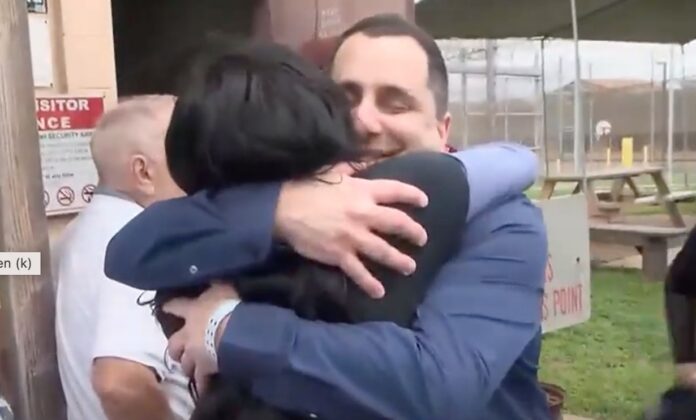Gordon Cordeiro, a man who spent 30 years behind bars for a murder he didn’t commit, is finally free. The Hawaii man was released after new DNA evidence proved his innocence.
Judge Kirstin Hamman made the groundbreaking decision to vacate Cordeiro’s conviction. She declared, “The judgment and sentence are vacated, and the defendant is ordered to be released from custody.”
The courtroom erupted in gasps and cries of disbelief when the ruling came. Moments later, the Zoom feed broadcasting the hearing cut off.
New DNA evidence changes everything
The case hinged on new evidence that emerged, including crucial DNA test results. These results suggested that the outcome of Cordeiro’s trial could have been entirely different. His original trial ended in a hung jury, with only one juror voting for conviction. Despite this, Cordeiro was convicted of murder, robbery, and attempted murder, and sentenced to life without parole.
The Hawaii Innocence Project, which took up Cordeiro’s case, argued that the new evidence proved his innocence. They also pointed to errors made by his previous attorney and claims of prosecutorial misconduct.
Prosecutors disagree with the ruling
Despite the judge’s ruling, Maui County Prosecuting Attorney Andrew Martin expressed disappointment. “None of the judge’s findings exonerate him in any way,” Martin stated. His office plans to appeal the decision and seek bail for Cordeiro, fearing he might flee.
Emotional moment for Cordeiro and supporters
Kenneth Lawson, co-director of the Hawaii Innocence Project, described the moment as deeply emotional. “He cried, we all cried,” Lawson recalled. Cordeiro, who had spent decades fighting for his freedom, finally heard the words that cleared his name.
“He believed he was going to be exonerated… But after two trials, it’s hard to keep the faith in the justice system. To finally hear a judge say, ‘I’m vacating your convictions,’ that’s when it hit him.”
After his release, Cordeiro, now 51, stepped outside the Maui Community Correctional Center, calling the day “Freedom Friday.” Reporters caught up with him, and he expressed gratitude. “I’m thankful,” he said, acknowledging his supporters and even thanking the judge and some prosecutors.
When asked about adjusting to life as a free man, Cordeiro remained calm. “I got good support,” he said. His first priority? Seeing his mother. “I’d like to go see my mom. Would be nice,” he added.
The truth about his conviction
Cordeiro’s conviction was based, in part, on false testimony from jailhouse informants. These informants were promised reduced sentences in exchange for their cooperation. Their fabricated stories about murder-for-hire plots played a significant role in convincing the jury of Cordeiro’s guilt.
However, the judge ruled there was insufficient evidence to prove that the state intentionally used false testimony. Prosecutors claimed that Cordeiro was still guilty, but new evidence suggested otherwise.
The evidence that set him free
Cordeiro’s defense attorneys presented new evidence that pointed to his innocence. The most important pieces of evidence came from DNA testing, which excluded him as the source of DNA found on the victim’s body and at the crime scene.
Cordeiro’s alibi was strong. On the day of the murder, he was at home with his family, not near the crime scene. The victim, Blaisdell, had gone to Skid Row with Michael Freitas to buy drugs. Freitas later became a key witness in the case, but his story kept changing. He even falsely accused Cordeiro, believing that he had “snitched” on him in an unrelated case.
Cordeiro’s attorneys believe Freitas was involved in the murder. They suspect Freitas set up Blaisdell for a robbery that turned deadly. Yet, Freitas’ shifting stories led police to focus on Cordeiro, despite his clear innocence.
The Hawaii Innocence Project claimed that the case was mishandled from the start. “The police botched this case from the beginning,” said Lawson. “They turned the real suspect into the state’s star witness, causing a 30-year nightmare for Gordon and his family.”
A miscarriage of justice
Cordeiro’s case serves as a reminder of the flaws in the justice system. Wrongfully convicted, he spent three decades fighting for his freedom. Now, as he steps into the light of a free man, he hopes to rebuild his life and find justice for the years lost.
His release is a victory for the Hawaii Innocence Project and for those who believe in the power of new evidence to overturn wrongful convictions. Cordeiro’s case proves that the truth always finds a way to come to light, no matter how long it takes.




